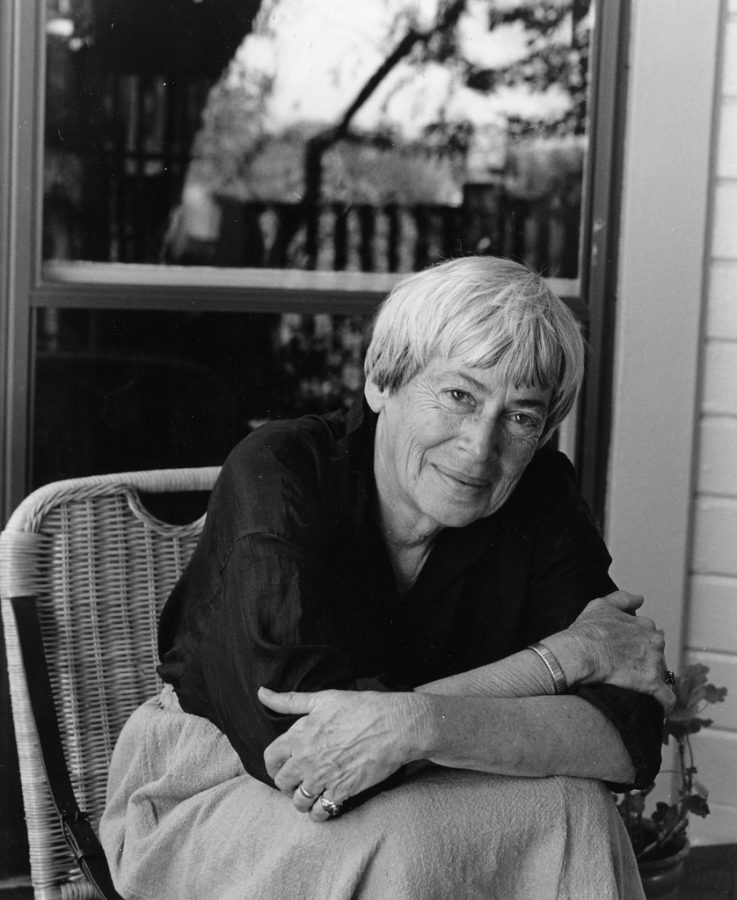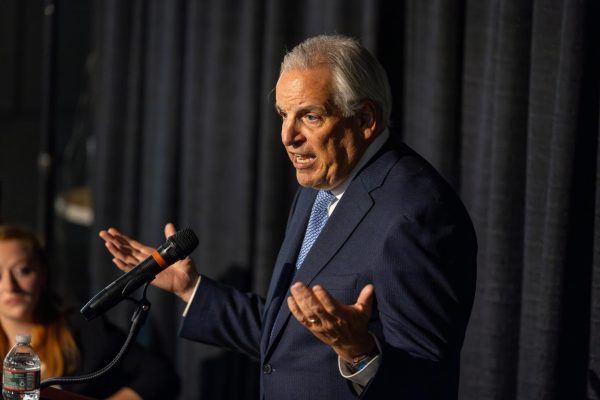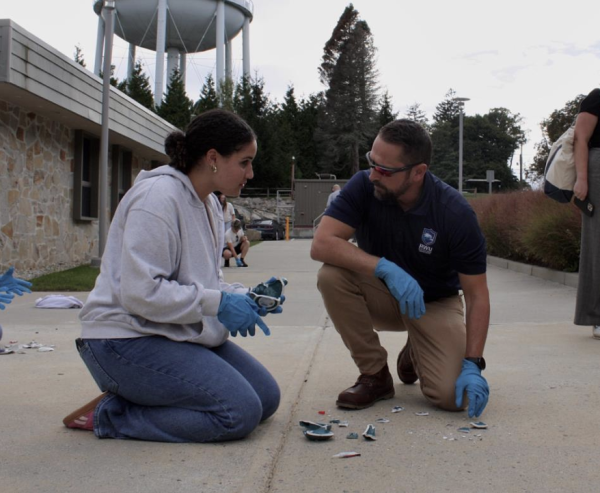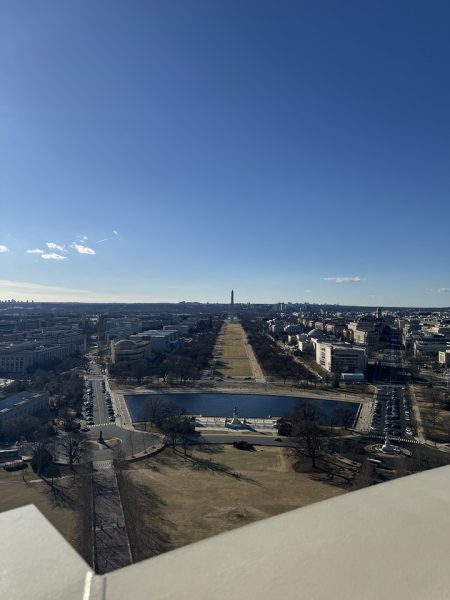Women who paved the way: Ursula K. Le Guin
Courtesy of Oregon State University on Creative Commons
Ursula K. Le Guin redefined the genre of science fiction when she began publishing in 1966.
In light of Women’s History Month, The Hawks’ Herald is featuring important women from throughout history. The fourth week of March highlights women who have paved the way in literature.
Ursula K. Le Guin was born on October 21, 1929 in Berkeley, California. Her mother was an author and her father was an anthropologist. The couple raised their four children with an appreciation of the arts, exploration and the Native American community around them.
She went on to attend Radcliffe College and graduated with a degree in Italian Literature and Renaissance French in 1951. She then graduated from Columbia University in 1952 with a master’s degree in Romance Literature of the Middle Ages and Renaissance.
She continued her studies and worked on obtaining her Ph.D. after receiving a Fulbright Grant. The grant allowed her to study in France from 1953 to 1954. When she was on a boat traveling to France, she met Charles Le Guin, a historian, and they married shortly after in Paris. While Charles worked on his doctorate, Ursula ended her studies even though she was offered a Fulbright Grant in 1968 and 1975 to study in London.
Charles worked on his doctorate in Georgia and Idaho. During that time, Ursula taught French and worked as a secretary. She stopped working when she gave birth to their first child in 1957. Their second child came in 1958 and Charles began working at Portland State University, so the family moved to Portland, Oregon. The Le Guin’s would have one more child, a son, in 1964.
While raising the family, Ursula began writing and by the early half of the 1960s had written five unpublished books, most of them taking place in an imaginary central European country she called Orsinia. She received many rejections from publishers and began writing science fiction and fantasy novels. Her first novel was published in 1966. It was a sci-fi novel called “Rocannon’s World.” This was followed by the 1968 release of “A Wizard of Earthsea,” the first book in a trilogy and the first in a line of books set in the fictional world of Earthsea.
The series sold millions of copies since its release and although it was marketed towards young adults, its maturity and depth is loved by all ages. Le Guin’s novel “Left Hand of Darkness” was released in 1969 and was considered groundbreaking as she created a world with the absence of gender — the novel followed a male from Earth and an androgynous character of the newly created world.
“Left Hand of Darkness” won a Nebula and a Hugo award. Le Guin continued to write books in the sci-fi and fantasy genres for many years and for multiple audiences. She continuously redefined the genres, opening the scope for future sci-fi and fantasy writers to come. She retired from teaching and with that, retired from writing novels. She spent her retirement writing poetry.
Overall, Ursula Le Guin wrote 21 novels, 12 children’s books, 11 short stories/novellas, four collections of essays, six volumes of poetry and four volumes of translation.
Her work has been translated into 42 languages and has remained in print for well over 50 years. She won eight Hugo Awards and six Nebula Awards, although she was nominated for 26 and 18 respectively. She also won 24 Locus Awards and her work, “Unlocking the Air and Other Short Stories,” was one of three finalists for the 1997 Pulitzer Prize for Fiction.
She acquired many awards and a lot of recognition between 1968 and 2018, when she was posthumously awarded her last Hugo Award. Ursula Le Guin passed away from unknown causes on January 22, 2018.
Emily Dvareckas graduated from RWU in 2022 with a degree in forensic science. She spent three years with The Hawks’ Herald as the photo editor...






